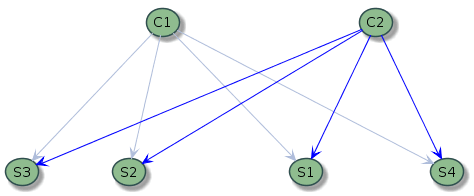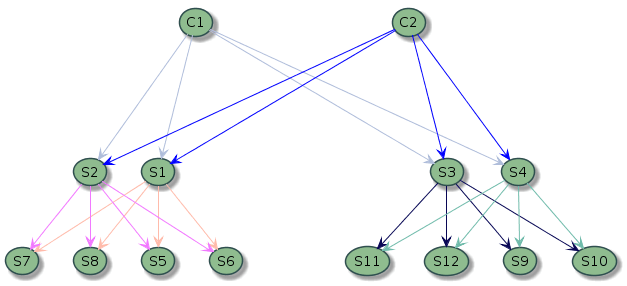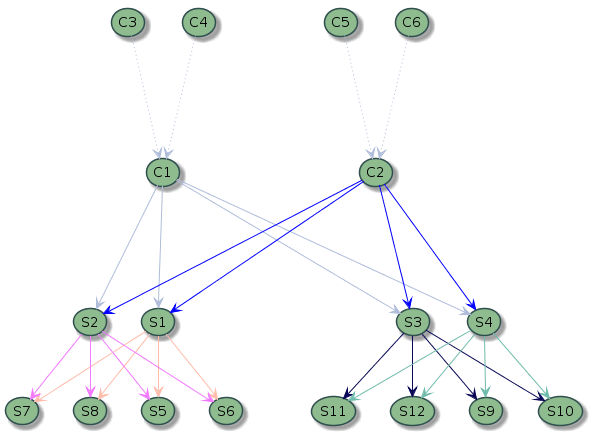We often have this kind of disclaimer from newcomers of the forum. Do we look so easily offended? But thanks. 
For your question, let’s assume we have the following parameters:
- being member require 2 signatures
- each member can issue a max. of 4 signatures
- maximum distance is 5.
Then we can imagine following graph:

Here, C stands for Corrupted and S for Sybil. As you can see, 2 corrupted members are able to create 4 Sybils. With the same idea, you understand that each Sybil can help to create up to 4 Sybils:

Of course, you can have a third level of Sybils (S13 … S28). But you can’t have another level.
Indeed, if C1 and C2 are members, they are certified by other members in a first place:

See: these 2 corrupted members could create 28 sybils in the worst case. Indeed, we assumed here that C1 and C2 were at a distance of 1 from the whole community, which implies every single member of the community has recognized them. That makes it very unlikely, if not impossible without having a WoT completely corrupted, which is a non-sense (indeed, having corrupted nodes is a comparison to non-corrupted other nodes. If everyone is corrupted, then no one is).
So in reality, the above case is only possible in the very early days of a currency for distance to be minimal (1) for the corrupted nodes.
In practice, with a greater number of members (I don’t have any number to give … but let’s imagine 50 members), we are more likely to be at a distance 2 from any other member (at best). So these 2 corrupted nodes could create only 14 Sybils.
And the bigger the community, the harder the Sybil attack.
I hope I have answered a bit to your question. 




